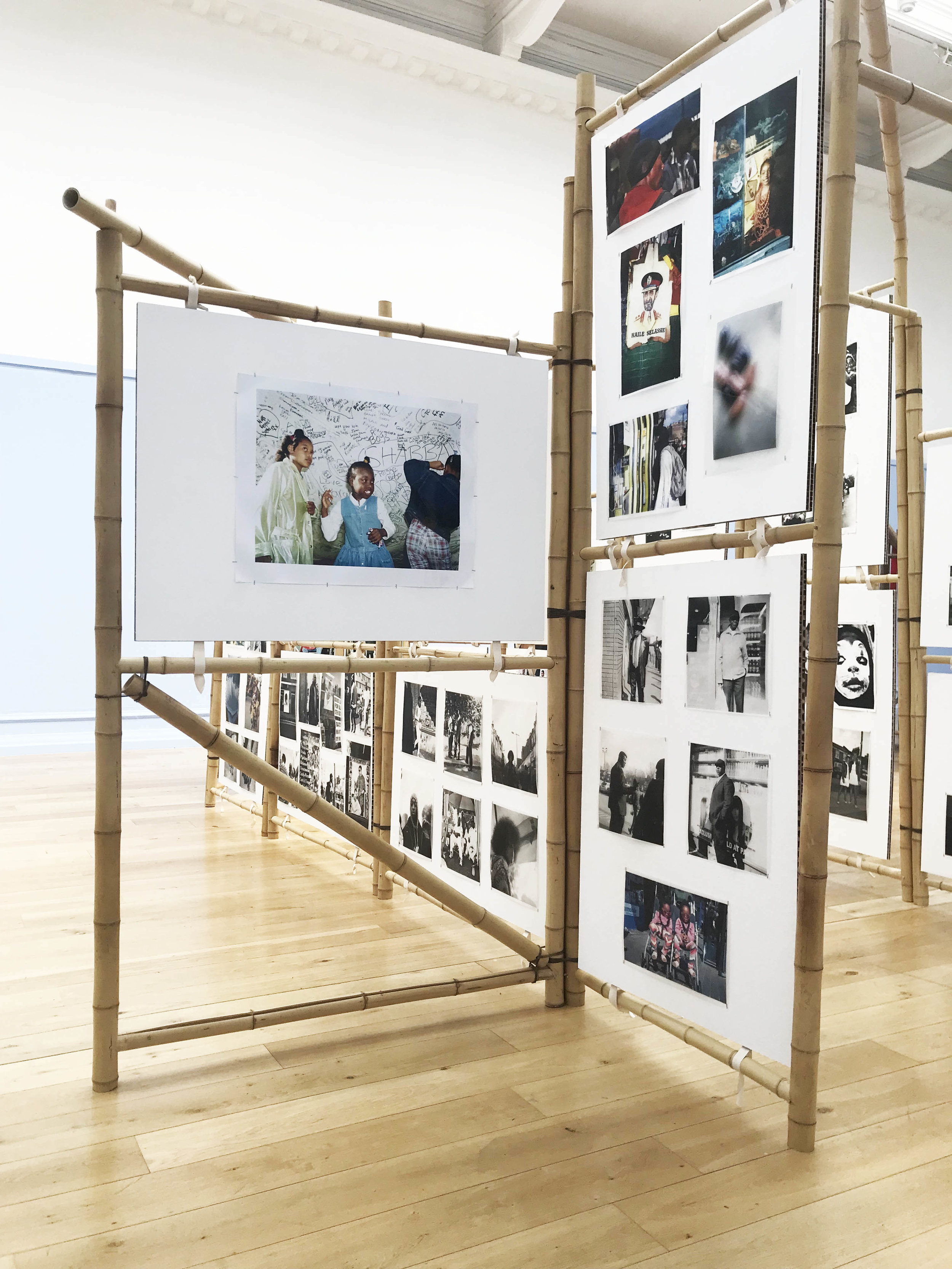The exhibition is the first UK solo show of Liz Johnson Artur which showcases photographs taken over the past 30 years recording the black diaspora, the artist’s neighbours in London.
Unusually, the photographs do not line the walls but rather are displayed in the space on sculptural bamboo structures. The construction is both crude and elegant and requires the viewer to be more actively engaged in the looking than if processing past wall hung framed images. The photographs are arranged thematically and the exhibition suggests an affectionate recording of people living their lives, of day to day events captured with warmth and without artifice.
The manner of the presentation, the photographs stapled onto large corrugated cardboard panels, suggests lives lived in groups and communities. The viewer is invited within to discover a cacophony of captured moments. The photographs vary in size and are printed in black and white and in colour on a variety of papers, fabrics, acetate underlining the diversity of the subjects.
At the back of the gallery a screened off corner forms The Women’s Room. Here the viewer is invited to sit on a bench cushioned with a tubular knitted rug and to listen to oral histories and also to leaf through a large cloth book of Artur’s photographs. On one of the walls, sculptured hair pieces by Virginie Pinto Moreira adorn another bamboo structure.
On leaving the gallery, the visitor is close to Camberwell and to Peckham, home to many members of the communities memorialised in If you know the Beginning, the End is no Trouble.
If you know the Beginning, the End is no Trouble continues at the South London Gallery until 1 September 2019.


